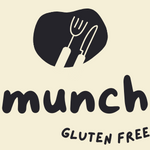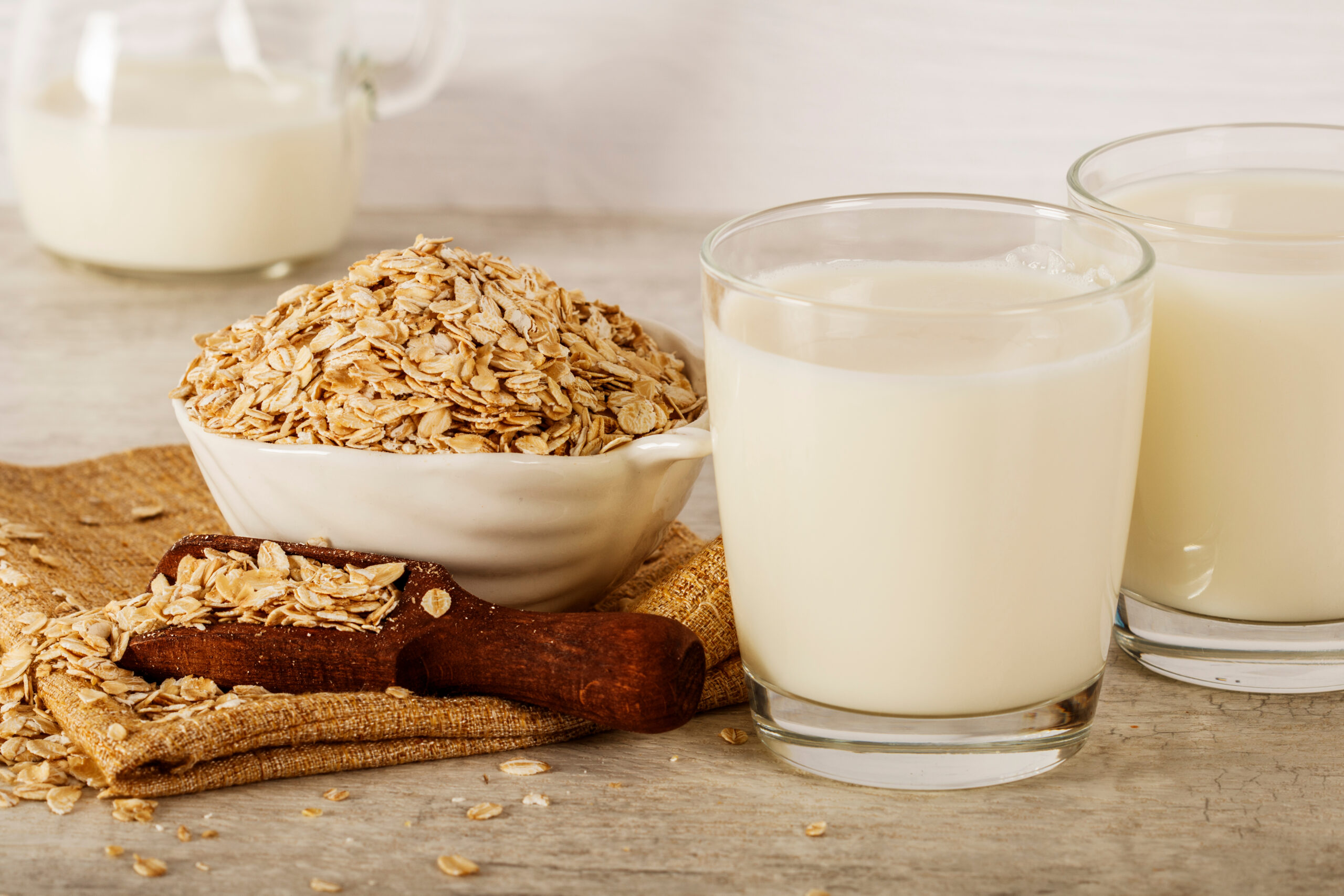With its rich, tasty, creamy texture, its health benefits, and the fact that it’s a vegan alternative to dairy milk. Oat milk has had a rapid rise in popularity these last few years, with even non-veggies making it as their go-to complement to cereal and hot drinks. The all-important question, however, is oat milk gluten-free? Let’s untangle the web and get some solid answers
You can find oat milk in most good supermarkets or shops these days – and many good cafes stock it too. It’s one of the most popular alternatives to dairy milk. Its popularity has risen alongside other daily milk alternatives such as soya milk and almond milk.
In particular, oat milk has served as a favoured alternative for those on vegan diets. As well as for those who are medically intolerant to dairy milk, such as those who are lactose intolerant or those who have an allergy to animal milk.
But what about those who are gluten intolerant? Oat milk is a popular dairy alternative, but what about people with coeliac disease? They might feel ignored or confused by the oat milk craze. Can they drink it safely? Here’s what you need to know.
So let’s look at whether or not oat milk is suitable for those who have gluten intolerance.
First off, let’s go back to basics:
When people with coeliac disease eat gluten, which is in grain, wheat, and barley, their immune system attacks their body’s tissue. This is a health condition that affects their digestion and absorption of nutrients.
The disease affects 1 in every 100 people in the UK – meaning that there has been a lot of interest, research and discussion into the disease.
For those who have coeliac disease, eating gluten can cause abdominal pain, bloating, and indigestion. It can also have more extreme effectives such as inducing vomiting and diarrhoea.
This is why those who are coeliac are called gluten intolerance.
While there is no known cure for coeliac disease, those who have it normally follow a gluten-free diet.
What is oat milk?
To make oat milk, you soak milled oats in water, blend them, and then strain them. You can use specialist equipment to mass-produce oat milk, or you can make it very simply in any kitchen. Oat milk is a type of plant milk.
Because oats are great at absorbing water, they’ve found themselves becoming natural milk alternatives, as they’re good at holding key nutrients and can result in a nice, milk texture when turned into liquid form.
To give it similar nutritional values as dairy milk, manufacturers often fortify oat milk with vitamins and minerals while making it. They can also add flavourings, salts, oils, and other ingredients to the product.
Oat milk is also known for being quite a versatile product. It is manufactured in a variety of flavors, such as sweetened, unsweetened, vanilla and chocolate.
Why has oat milk become so popular?
Maybe you’ve seen how the ‘Milk’ section in your local supermarket or shop has expanded a lot lately. All kinds of new liquids, brands, boxes, bottles and cartons are filling up the shelves that used to be only for dairy milk.
Yep, oat milk has become extremely popular across the world in recent years, and there are several important reasons for this.
One reason is the success of the pioneering oat milk brand, Oatly, which has produced alternative milk products since the 1990s. Oatly’s success in the marketplace has led other international milk brands to introduce alternatives. With the likes of Alpro, Provitamil and others all looking to cash in on the popularity of oat milk globally.
Another reason for the popularity of oat milk is the rise in vegetarianism and veganism in society. With more people becoming conscious of what they consume, as well as what effect their consumption has on the planet. Veggie diets are becoming more and more popular, with millions out there trying to adopt a lifestyle that doesn’t involve using dairy milk.
But it seems that the success and popularity of oat milk is far more than just a passing fad or a trend. Oat milk has proven consistently popular for years now and is even the preferred choice of many who wouldn’t class themselves as vegetarians or vegans. Taste, price, and availability have all been cited as other reasons why people have switched to drinking oat milk over the more established dairy milk.
With the continuing popularity of this product in society, it’s natural that many who have coeliac disease would be curious to find out whether or not it’s suitable for them.
So, is oat milk gluten-free?
Oats do not have gluten in them, but many people with coeliac disease need to watch out. Sometimes, gluten products like wheat, rye, and/or barley might come into contact with oats when they get harvested, stored, or packaged..
This makes things a little bit more tricky for those who are gluten intolerant in finding the right product for them.
You can call oat milk gluten-free if it meets certain conditions, but you should always look for a clear gluten-free label or statement on the product if you have coeliac disease and want to avoid any risk of getting something unsuitable.
Got it. But what does ‘explicitly make clear’ mean?
In the case of gluten-free products, making things clear means that these products should have some indication on the packaging – or on a company’s website – that their product is absolutely gluten-free.
Normally, UK oat milk brands will display very clearly that they’re gluten-free (with some even including the words ‘gluten free’ in their brand name or high up in their packaging).
In the UK, it’s a legal requirement for grains that contain gluten, including oats, to be listed in an ingredients list if they have been used as a deliberate ingredient. So, to put it plainly, if its gluten-free, you’ll see it written down somewhere.
In the US, brands can be ‘certified’ as gluten-free, with many getting the stamp of approval from the Gluten-Free Certification Organization (GFCO), the largest third-party gluten-free certifying agency in the U.S.
So basically, if a brand is definitely gluten-free, they’ll most likely be making it very clear and obvious on the packaging.
Great! So what brands are gluten-free in the UK?
A number of brands in the UK boast gluten-free oat milk. On supermarket aisles, you can look out for drinks such as Rude Health Gluten Free Oat Drink and Plenish Oat M*lk. (Both of these drinks have gluten-free recipes at the time of writing).
Similarly, Alpro Barista Gluten Free Oat Milk is a popular choice for those who are coeliac (but be wary that the standard Alpro Barista Oat Milk is not gluten-free).
Another thing worth noting is that the popular oat milk brand Oatly is NOT classed as being gluten-free in the UK (although it is in the US). This is because, in the UK, Oatly oat milk contains a small amount of gluten.
Explaining this on their website, Oatly writes: “When it comes to gluten, it depends on where you live. In the US, our products are made from certified gluten-free oats and (consequently) labelled as gluten-free. In Europe and Asia, however, our products contain a small amount of gluten (less than 100ppm mg/kg product to be specific). So although that’s not much gluten at all – they cannot, of course, be classified as completely gluten-free.”
Can I make gluten-free oat milk for myself?
Yes! You can make gluten-free oat milk in the same way as you can make regular oat milk, all by following a few straightforward steps.
For those who are coeliac, the only thing you need to think about is making sure you have gluten-free oats. Similar to how oat milk brands will display that they are gluten-free on their packaging, oat brands normally do the same thing.
Once you’ve got your uncontaminated oats, all you need is mesh strainer or sieve, a good blender or food processor. You can follow online recipes to learn how to master your own oat milk.
Anything else I should know?
One thing that people who are gluten intolerant should be aware of is that oats contain something called avenin, which is a protein similar to gluten.
The presence of this protein is not a major concern however. According to Coeliac UK, research has shown that most people with coeliac disease can tolerate gluten-free oats with no problems. Research also shows that the majority of people who are sensitive to gluten do not react to avenin. Meaning that they can eat pure, uncontaminated oats with no problems.
As always, it’s best to do as much research as possible if you’re concerned about what you’re eating.
Happy – and healthy – eating!

